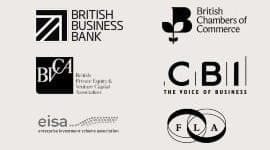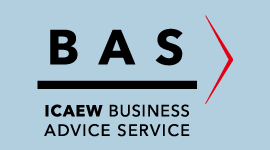Debt will undoubtedly be involved in growing a business. There are many forms of debt finance, each of which can be more or less appropriate to the type of business, the stage of its development or the plans it has to grow.
Short-term capital should not be used to fund long-term plans. Equally, long-term debt finance should not be chosen to meet short-term or immediate needs. On the financing journey, it is highly likely that you will need both, and the task is to get the mix right.
Debt, in its simplest terms, is an arrangement between borrower and lender. A capital sum is borrowed from the lender on the condition that the amount borrowed is paid back in full either at a later date (a bullet repayment), multiple dates or over a period of time. Interest is accrued on the debt and the business’s repayment usually has an element of capital repayment and interest.
Unlike equity, debt does not involve relinquishing any share in ownership or control of a business. However, a lender is far less likely to help a business hone its strategy than a business angel or venture capital investor.
Debt can be used for longer-term investment and/or to fund working capital. For the former, a loan, bond or leasing arrangement can be more appropriate and, for the latter, some form of overdraft or asset-based finance (ABF) is likely to be more appropriate.
At any stage of its development, a business is likely to need a mix of different forms of debt. Often an established company will use a blend of different debt products from a range of providers.
Three broad categories of debt
Loans and overdrafts
Overdrafts or fixed-term loans are the most likely debt options offered by most banks or other lending institutions. You may also be offered peer-to-peer (P2P) business loans and start-up loans.
Finance secured on assets
Finance can be secured against your business assets. Secured debt options may include asset finance (leasing or hire purchase) and ABF (invoice discounting, factoring, asset-based lending (ABL) and supply chain finance). These are provided by most banks and specialist asset finance and ABF companies including some online platforms.
Fixed-income debt securities
These take the form of bonds or mini-bonds. Credit unions are cooperatives that can offer loans to their members. Find out more at ABCUL.
There are also community development finance institutions that provide micro-finance loans to start-ups and individuals as well as established enterprises. For further information visit the Finding Finance website.
Merchant cash advances are unsecured advances of cash, based on future credit and debit card sales. These are repaid via a pre-agreed percentage of a business’s card transactions. If the cash advance takes longer to pay off, the originally agreed repayment cost remains the same.
What is most appropriate depends on the purpose of the capital being borrowed, the credit record of the borrower, the amount, the repayment term and the interest that is being repaid. You can see what is available from different providers on the Better Business Finance website.
Next steps
To start your finance journey, use our interactive tool.
Finance at every stage
Business financing is not a one-off decision, but an ongoing and evolving situation. No decision can be made in isolation to the businesses journey. Find out more about what options are suitable now and what might work at another stage.

More support to your inbox
ICAEW publishes daily, weekly and monthly emails offering viewpoints, interviews and features that make the connection between global economic issues, chartered accountancy, individual members and business.
Understand your options
Find out more about the different finance options available at different stages of your business journey.
Debt finance optionsEquity finance options

